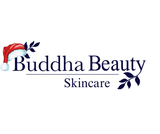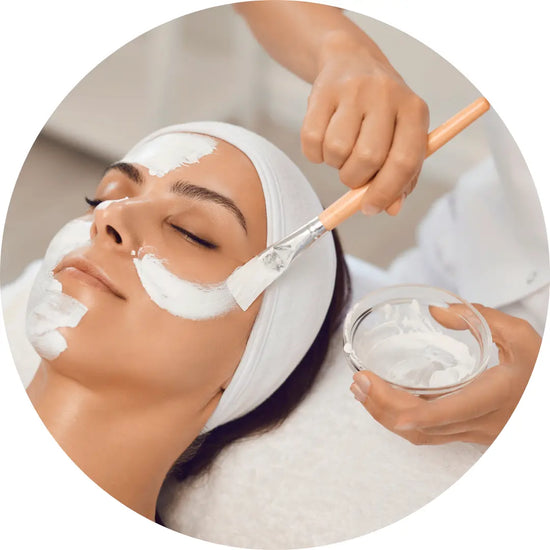Are Facial Toners Beneficial ?
Yes, facial toners can be beneficial as part of a skincare routine, depending on your skin type and the specific formulation of the toner. Here's how our toners can benefit your skin:
Restores Skin's pH Balance
pH Balance: After cleansing, especially with alkaline soaps or harsh cleansers, your skin's natural pH balance can be disrupted. Toners help restore the skin's pH to its natural level, which is important for maintaining the skin's protective barrier and overall health.
Removes Residual Impurities
Extra Cleansing: Toners can help remove any residual makeup, dirt, or oil that your cleanser might have missed. This ensures that your skin is thoroughly clean before applying our other skincare products like serums and moisturisers.
Prepares Skin for Better Absorption
Enhances Product Efficacy: By prepping your skin, toners allow subsequent skincare products (like serums and moisturisers) to penetrate more deeply and work more effectively. Well-hydrated skin can absorb active ingredients more efficiently.
Hydration
Moisture Boost: Many modern toners are formulated with hydrating ingredients. These ingredients help to add moisture to the skin, leaving it plump and refreshed.
Prevents Dryness: Our hydrating toners can be particularly beneficial for dry or dehydrated skin, helping to prevent tightness and dryness after cleansing.
Soothes and Calms the Skin
Calming Ingredients: Toners often contain soothing ingredients, which can help calm irritated or sensitive skin, reduce redness, and provide a refreshing feel.
Reduces Inflammation: For those with sensitive or reactive skin, using a toner with anti-inflammatory ingredients can help reduce inflammation and soothe irritation.
Controls Oil and Tightens Pores
Oil Control: Some toners are formulated to help control excess oil production, which can be particularly beneficial for those with oily or acne-prone skin. Ingredients in our toners can help reduce oiliness and prevent clogged pores.
Minimises Pore Appearance: While toners can't actually shrink pores, they can temporarily tighten them, making them appear smaller and less noticeable.
Brightens the Skin
Evens Skin Tone: Regular use of our toners can help reduce the appearance of dark spots, hyperpigmentation, and uneven skin tone over time.
Refreshes the Skin
Instant Refreshment: Toners can provide an instant refreshment, especially on hot days or after a workout. Spraying or applying toner can revitalise tired, dull skin and give it a quick boost.
Acne Prevention
Reduces Breakouts: For acne-prone skin,our toners can help prevent breakouts by keeping pores clear and reducing bacteria on the skin’s surface.
Are Facial Toners Necessary ?
Facial toners are not strictly necessary for everyone, but they can be a valuable addition to a skincare routine depending on your skin type, concerns, and the specific benefits you're looking for. Here's a breakdown to help you determine whether a toner is necessary for you:
When Toners Might Be Necessary or Beneficial:
If You Need to Restore pH Balance:
If You Want to Remove Residual Impurities:
If Your Skin Needs Extra Hydration:
If You Have Oily or Acne-Prone Skin:
If You Want to Exfoliate Gently:
If You Have Sensitive or Reactive Skin:
If You Want to Enhance the Effectiveness of Other Products:
When Toners Might Not Be Necessary:
If You Have Balanced, Healthy Skin:
If Your Cleanser is pH-Balanced:
If You Have a Simple Routine:
If You’re Already Using Multiple Active Ingredients:
Are Facial Toners Worth It ?
Whether facial toners are worth it depends on your skin type, concerns, and overall skincare routine. Here’s a breakdown to help you decide if a toner is a valuable addition for you:
When Facial Toners Are Worth It:
If You Have Specific Skin Concerns:
If You Use a Cleanser That Disrupts pH Balance:
If You Want to Enhance Your Skincare Routine:
If You Prefer a Comprehensive Skincare Routine:
If You Need Gentle Exfoliation:
When Facial Toners Might Not Be Worth It:
If You Have Well-Balanced Skin:
If You Use a pH-Balanced Cleanser:
If You Prefer a Minimalist Routine:
If Your Skin is Sensitive to Multiple Products:
Can Facial Toners Expire ?
Yes, facial toners can expire. Like all skincare products, toners have a shelf life and can become less effective or even harmful if used past their expiration date. Here are some key points to keep in mind:
Shelf Life and Expiration Dates
Check the Packaging: Our toners will have an expiration date printed on the bottle or box. This date indicates how long the product is expected to remain effective and safe to use.
Signs a Toner Has Expired
Change in Smell: If your toner develops an unusual or off-putting smell, it may have expired. Fresh toners typically have a neutral or light fragrance, so a sour or rancid odor is a sign it’s time to discard it.
Change in Color or Texture: If the toner changes color or the liquid separates, thickens, or becomes cloudy, it’s likely no longer good to use.
Reduced Effectiveness: Expired toners may lose their effectiveness, meaning they won’t deliver the same skincare benefits as they would when fresh.
Skin Irritation: Using expired toner can lead to skin irritation, breakouts, or other adverse reactions, especially if the ingredients have degraded over time.
Storage Tips to Extend Shelf Life
Store in a Cool, Dry Place: Heat, humidity, and direct sunlight can accelerate the breakdown of ingredients. To extend the life of your toner, store it in a cool, dry place, away from direct sunlight.
Keep the Cap Tightly Closed: Make sure the bottle is tightly sealed when not in use to prevent air from getting in, which can cause the toner to degrade more quickly.
Avoid Contamination: Don’t dip your fingers directly into the bottle, as this can introduce bacteria and other contaminants. Instead, pour the toner onto a clean cotton pad or use a pump if the bottle has one.
Typical Shelf Life
Unopened: Unopened toners typically have a shelf life of 1 to 2 years, depending on the formulation and preservatives used.
Opened: Once opened, most toners are good for 6 to 12 months, though this can vary based on the specific product and how it’s stored.



















